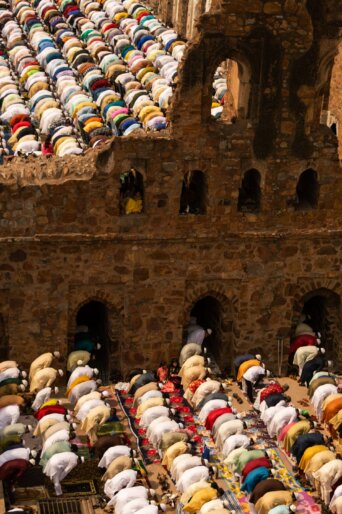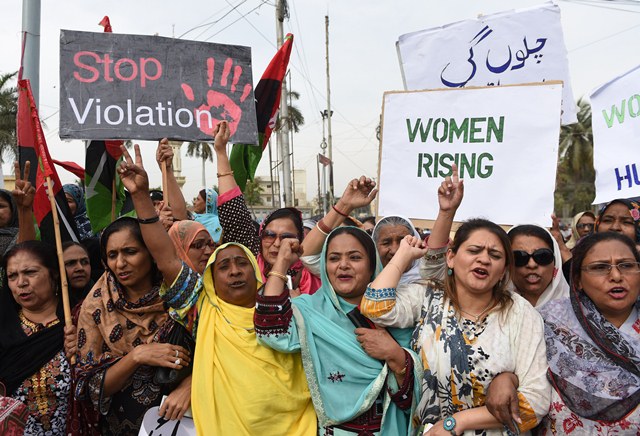- About
- Topics
- Story
- In-Depth
- Picks
- Opinion
- News
- Donate
- Signup for our newsletterOur Editors' Best Picks.Send
Read, Debate: Engage.
| topic: | Discrimination |
|---|---|
| located: | Pakistan |
| editor: | Shadi Khan Saif |
The relatively free and robust media in Pakistan is under constant pressure by deep state forces, and now, with every passing day, the general public is losing its already scarce freedom of expression in the name of press regulations and 'national security'.
Miserably failing the population of over 200 million in terms of service delivery, security and welfare, the all-powerful forces of the deep state continue with their efforts of compromising the dissemination of information as well.
In a recent example, the country's leading English-language newspaper, Dawn, came under fire by the establishment, as well as by top government officials, for reporting a story on the dozens of worshippers killed in a brazen suicide attack on a Shia mosque in Peshawar city, close to Afghanistan.
The harsh criticism was targeted at Dawn for highlighting the fact that it was a minority community's mosque since reporting this detail could harm the national security of Pakistan.
Clearly hiding its incompetence in preventing such attacks and eliminating the elements behind so many of these hate crimes, the state forces prefer that none of it be reported. Many critics believe the deep state does not want to harm its links with the groups involved in such attacks for its regional strategic goals.
The pressure tactics and intimidations do not stop here. In fact, it goes beyond the tightening of rules into the sphere of crude use of force against journalists and media houses critical of the army's intrusion into political affairs.
Just last month, the Reporters Without Borders (RSF) condemned an amendment to Pakistan’s law apparently designed for combatting online disinformation that was issued quietly. If not struck down by the Supreme Court, it will provide the government and armed forces with a new mechanism for unrelenting censorship, RSF said.
As a result of an ordinance approved by the cabinet on 19 February (Saturday) and promulgated by the president the next day, online defamation in Pakistan is now punishable by up to five years in prison.
The amendment makes online defamation an exclusively criminal offence, which means that those charged will be denied any possibility of release on bail before trial. Worse still, it will prevent any possibility of a civil settlement between plaintiff and defendant dispensing with the need for a criminal trial, said the RSF, adding that the amendment will enable any person or entity to file a defamation complaint, including those who have no connection with the alleged defamation’s target. In other words, any political activist will be able to bring a defamation complaint against a journalist they think is overly critical of the government or military.
It went on to say that after bringing much of the traditional press to heel by various forms of harassment and intimidation, Prime Minister Imran Khan’s government has often tried to impose censorship on online publications.
Pakistan's own Council of Pakistan Newspaper Editors (CPNE) too has rejected the Pakistan Electronic Crimes (Amendment) Act Ordinance 2022 (PECA).
Earlier, by turning deaf ears to the calls for probe of the suspicions death of a champion of democracy and then blocking media coverage of his funeral, the power quarters in the deep state of Pakistan took the price of political dissidence to new and furiously lethal levels last year.
Senator Usman Kakar was a member of the upper house of parliament in Pakistan representing his constituency in marginalised Baluchistan province before his suspicious death - or murder, as his son Khushal Kakar calls it.
Not a single leading news organisation dared to cover such a large crowd that clearly held the deep state forces responsible for the alleged killing of Senator Kakar.
The aim by Pakistan's deep forces with the latest move seems to be to silence the individual critics that are gaining popularity through their solo-shows on the social media websites avoiding the curbs imposed on the traditional media houses. And, this is no less than scratching the individuals' basic freedom of expression.
Photo by Salman Preeom

